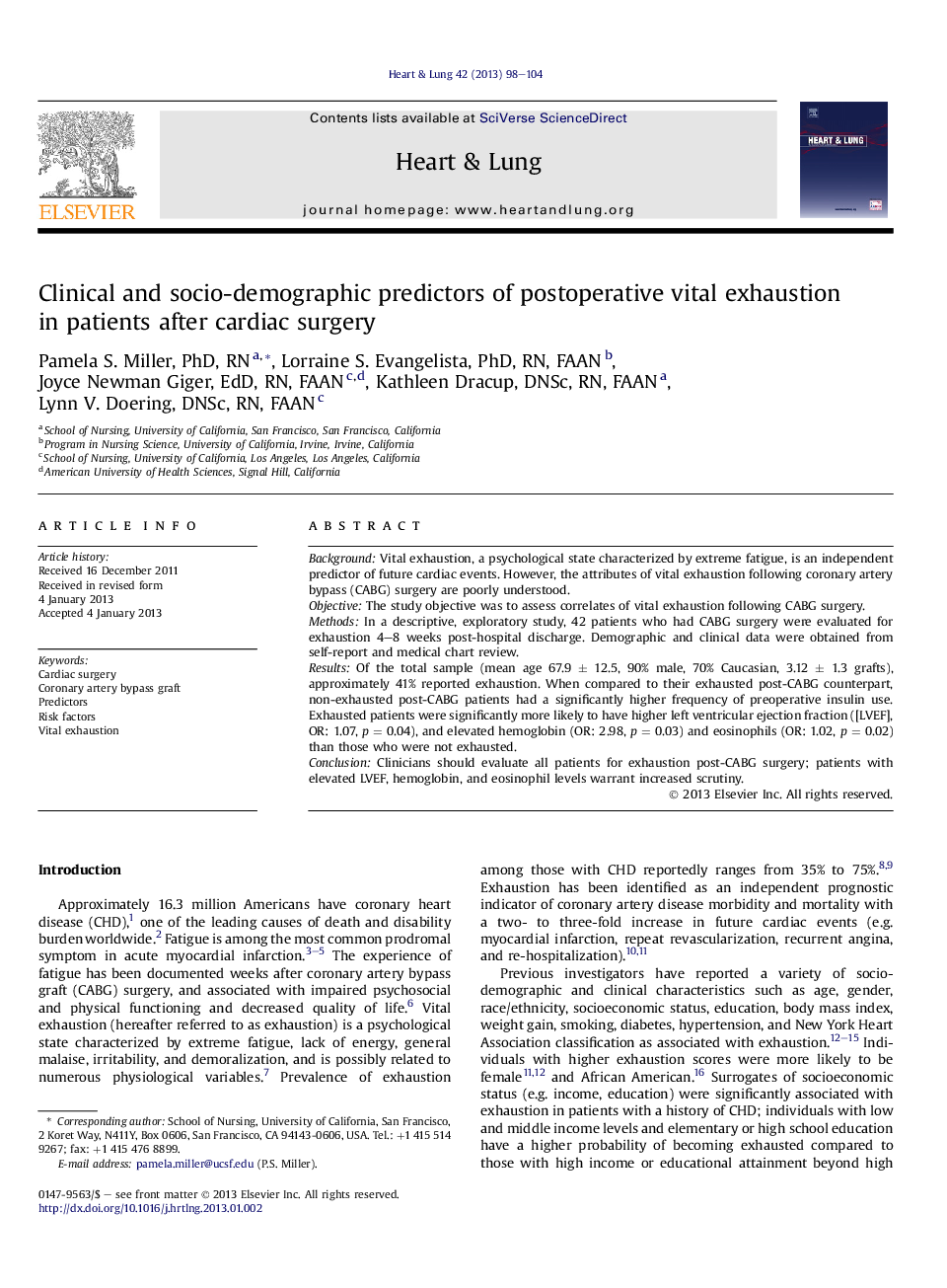| Article ID | Journal | Published Year | Pages | File Type |
|---|---|---|---|---|
| 2651329 | Heart & Lung: The Journal of Acute and Critical Care | 2013 | 7 Pages |
BackgroundVital exhaustion, a psychological state characterized by extreme fatigue, is an independent predictor of future cardiac events. However, the attributes of vital exhaustion following coronary artery bypass (CABG) surgery are poorly understood.ObjectiveThe study objective was to assess correlates of vital exhaustion following CABG surgery.MethodsIn a descriptive, exploratory study, 42 patients who had CABG surgery were evaluated for exhaustion 4–8 weeks post-hospital discharge. Demographic and clinical data were obtained from self-report and medical chart review.ResultsOf the total sample (mean age 67.9 ± 12.5, 90% male, 70% Caucasian, 3.12 ± 1.3 grafts), approximately 41% reported exhaustion. When compared to their exhausted post-CABG counterpart, non-exhausted post-CABG patients had a significantly higher frequency of preoperative insulin use. Exhausted patients were significantly more likely to have higher left ventricular ejection fraction ([LVEF], OR: 1.07, p = 0.04), and elevated hemoglobin (OR: 2.98, p = 0.03) and eosinophils (OR: 1.02, p = 0.02) than those who were not exhausted.ConclusionClinicians should evaluate all patients for exhaustion post-CABG surgery; patients with elevated LVEF, hemoglobin, and eosinophil levels warrant increased scrutiny.
